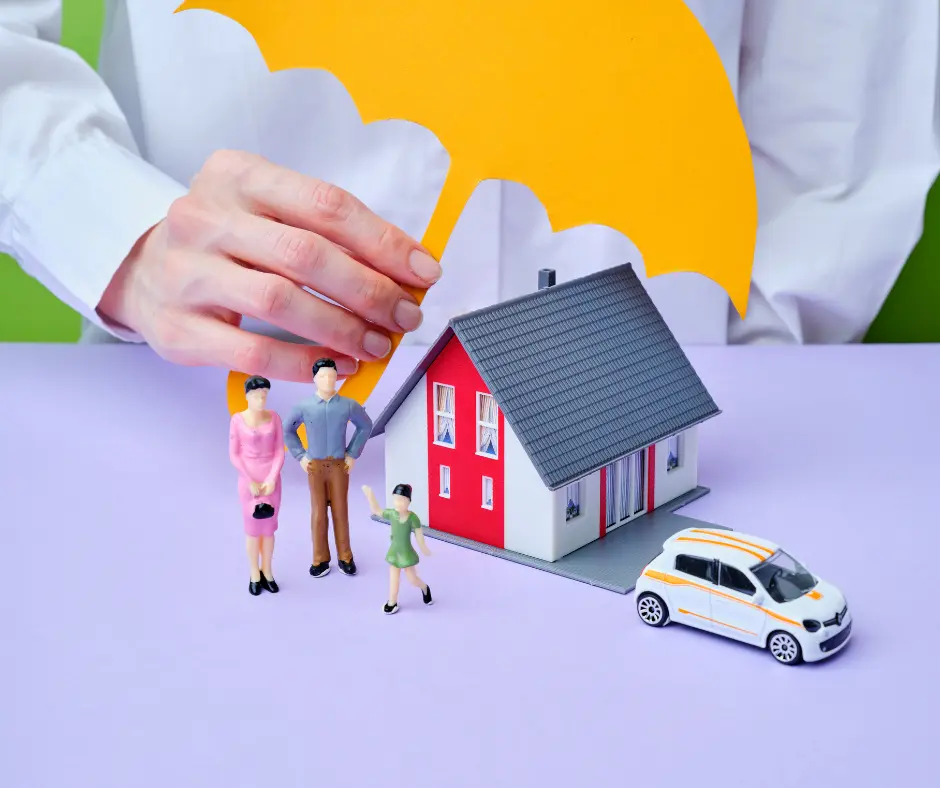How to Verify If Your Roofer Is Properly Insured

Just as you wouldn’t hire a doctor without verifying their credentials, you shouldn’t hire a roofer without confirming their insurance coverage. Ensuring that your roofer is properly insured protects you from potential financial liabilities in case of accidents or damages during the project.
In this guide, you will learn the steps to effectively verify the insurance status of your roofing contractor, giving you peace of mind and ensuring that you’re making a safe investment for your home.
Key Takeaways:
- Request a copy of the roofer’s insurance certificate to confirm its validity and coverage limits.
- Verify that the insurance coverage includes both general liability and workers’ compensation to protect against potential liabilities.
- Contact the insurance provider directly to ensure that the policy is active and has not lapsed.
- Check the insurance policy for any exclusions that may affect coverage during roofing projects.
- Ask for proof of licensing in addition to insurance, as both are imperative for accountability and compliance with local regulations.
Identifying the Insurance Types Your Roofer Should Hold
Understanding the various types of insurance your roofer should carry is necessary to ensure that you are fully protected during the roofing process. Your contractor should have at least two key types of insurance: Liability Insurance and Workers’ Compensation Insurance. To help you navigate this topic, here’s a summary of the insurance types that every reputable roofer should have:
| Insurance Type | Description |
| Liability Insurance | Protects you from third-party claims related to bodily injury or property damage. |
| Workers’ Compensation | Covers medical expenses and lost wages for workers injured on the job. |
| Professional Liability Insurance | Protects against claims related to errors, omissions, or negligence in service. |
| Bonds | Assures you that the contractor will complete the job as promised. |
| Commercial Auto Insurance | Covers vehicles used by the roofer during the project. |
Knowing which types of insurance are vital will equip you with the right questions to ask your potential roofer, ensuring that you’re not left vulnerable during and after the project is completed.
Liability Insurance: Protecting You from Accidents
Liability insurance serves as a safety net for you as a homeowner. If an unfortunate incident occurs during the roofing project—like a falling tool that damages your property or an injury sustained by a passerby—you want to ensure that the roofer’s liability insurance will cover these costs.
Without this protection, you could find yourself facing significant out-of-pocket expenses that would compound the stress of an ongoing roofing project. In some cases, having liability insurance isn’t only a recommendation; it’s a requirement set by local laws or regulations.
Verifying that your roofer has up-to-date and adequate coverage will not only protect your financial interests but will also provide peace of mind throughout the entire process.
Workers’ Compensation: Safety for Everyone on Site
Workers’ compensation insurance is another necessary type of coverage that every roofing contractor should carry. This insurance protects both your roofer’s employees and yourself in the event of an on-the-job injury. If a worker falls from your roof, for example, their medical expenses and any associated lost wages will be covered without you being drawn into a costly legal battle. Having this insurance is also a legal commitment in many locations.
Roof work is inherently dangerous, and accidents can happen even with the most skilled labor. If your contractor lacks workers’ compensation insurance, you could become liable for injuries sustained on your property, resulting in potential lawsuits or excessive fees. Further, the absence of workers’ compensation can indicate other larger issues in the contractor’s business practices.
If they’re unwilling to protect their workers legally, they may not prioritize safety very highly throughout the project. Knowing the status of your roofer’s workers’ compensation coverage will not only ensure you’re meeting local regulations but also foster a safer working environment for everyone involved in the project.
The Critical Verification Process To Check If the Roofer Is Properly Insured
Engaging in the verification process for your roofer’s insurance is straightforward but demands diligence. Start by requesting a certificate of insurance from the contractor. This document serves as official proof of coverage and should detail the types of insurance the roofer holds, along with their policy limits.
Make sure that the certificate includes the contractor’s name and business address, and pay special attention to the effective dates. Insurance can lapse, so you want to confirm the coverage is active for the duration of your project. If the roofer hesitates to provide this certification or offers excuses, it might raise a red flag regarding their credibility.
Requesting Proof of Insurance: What to Ask For
In your request for proof of insurance, focus on a few key details. Ask specifically whether the roofer carries both liability insurance and workers’ compensation. Liability insurance protects you from damages that may occur to your property during the project, while workers’ compensation covers any injuries to workers on the job site.
If the roofer claims to have both, make sure those policies provide sufficient coverage to protect you against potential risks—many industry experts recommend a minimum liability coverage of at least $1 million.
Don’t shy away from asking the contractor about any relevant endorsements or additional coverage that might benefit your specific project. For example, some contractors may have added coverage for weather-related damages or specialty work that involves heightened risks. Verify if the roofer is also insured for projects involving rooftop work, as these often require specific insurance due to the higher risk factors associated with them.

Cross-checking Coverage with Insurance Providers
After securing the certificate, you should take the further step of contacting the insurance provider to cross-check the legitimacy of the coverage. Call the number listed on the certificate rather than relying on information provided by the contractor to ensure you receive unbiased verification. It’s not uncommon for less scrupulous roofers to provide fraudulent certificates, and confirming directly with the insurance company will help you avoid potential pitfalls.
During this call, inquire about the specific policies mentioned on the certificate, including their limits and effective dates. Don’t hesitate to ask if there are any claims associated with the contractor or if there have been instances of non-renewal or termination of policies.
Establishing a clear understanding of the roofer’s current standing with their insurer can help safeguard your investment and ensure that you’re covered from unexpected expenses resulting from accidents or damages.
Recognizing Red Flags in Insurance Documentation
Common Indicators of Insufficient Coverage
A roofer’s insurance documentation should provide clear insights into their coverage levels to safeguard you against potential liabilities. Be wary if you see limited coverage amounts or exclusions that could put you at risk.
For instance, a general liability policy should typically start at $1 million; anything less might indicate a lesser commitment to protection and could result in substantial out-of-pocket costs for you in the event of incidents on your property. Additionally, if the roofer relies heavily on subcontractors, confirm that their subcontractors also have sufficient coverage; otherwise, any damage caused by them during the project could fall back on your shoulders.
Another red flag to watch for is if the insurance is solely for workers’ compensation without a robust general liability policy. Such a situation leaves you exposed. For example, if a worker suffers an injury on your property and there’s no liability coverage, you may face lawsuits or significant legal fees.
Similarly, pay attention to the insurance company listed on the documentation; a well-known, reputable insurer signifies a solid safety net, while obscure or questionable companies can indicate potential issues down the line.
How to Spot Fakes or Altered Documents
Fake or altered insurance documentation can present significant risks when hiring a roofer. One of the first things to check is the accuracy of policy dates. If the effective date or expiration does not match what the roofer states, it could indicate tampering or that the policy has lapsed.
Also, look for signs of alteration, such as discrepancies in fonts, ink colors, or any unusual markings that deviate from standard documentation practices. Genuine insurance policies are typically printed on consistent, high-quality paper, while fakes may look amateur or poorly formatted.
Contacting the insurance company directly can help clarify any suspicions. Request to verify the policy number stated in the documentation with the issuer, asking specific questions about the coverage levels and the roofer’s relationship with them. If you encounter resistance or evasiveness from the roofer when questioning the validity of their documents, it’s a strong indicator to reconsider your options. A professional will not hesitate to affirm the legitimacy of their insurance coverage.
In addition to checking for anomalies, staying vigilant about policy language and nuances can reveal a lot. For instance, terms like “additional insured” should be explicitly mentioned for projects involving subcontractors. This inclusion denotes that anyone working on your property is adequately protected under the roofer’s policy, easing your worries about liabilities. Request full policies instead of summaries to ensure you’re deeply exploring the exact coverages and limitations provided by the roofer’s insurance.
Navigating Local Regulations and Requirements
Manitoba-Specific Insurance Requirements for Roofers
As a Winnipeg homeowner, understanding Manitoba’s specific insurance requirements for roofers is crucial for your protection. The province likely mandates certain insurance coverages that roofers must carry, and being aware of these can save you significant headaches down the line.
For instance, commercial general liability insurance is typically a must-have, protecting both you and the contractor in the event of accidents, property damage, or injuries occurring during the roofing project. This is your safeguard against unexpected costs if, for example, a shingle falls and damages a neighbour’s car, or if a worker accidentally breaks a window.
Furthermore, Workers’ Compensation (WCB) coverage is a critical requirement in Manitoba. This ensures that if a roofing worker is injured on your property, their medical expenses and lost wages are covered by WCB, and you, as the homeowner, are not held financially responsible. Hiring a roofer who doesn’t adhere to these provincial requirements could leave you personally liable for substantial costs arising from an incident during the work.
While specific regional mandates are less common within Manitoba beyond provincial ones, it’s always wise to ask your roofer for documentation proving they carry all the correct insurance as per Manitoba’s laws. This proactive step helps ensure you’re not caught off guard by an unexpected incident or liability.

Ensuring Compliance with Winnipeg’s Building Codes
Winnipeg’s building codes encompass a variety of regulations that govern roofing materials, installation processes, and safety measures, directly influencing how roofing projects must be executed in our city. Compliance with these codes is not merely a regulatory requirement but also fundamental to guaranteeing the durability, safety, and longevity of your roof, especially given Winnipeg’s sometimes harsh climate.
Engaging a roofer who is well-versed in Winnipeg’s specific codes significantly reduces the chances of delays or costly rework due to non-compliance. These regulations may dictate the type of materials allowed based on our climate or set standards for energy efficiency that enhance the sustainability and long-term performance of your roofing project.
Failing to comply with Winnipeg’s building codes can lead to significant repercussions for you, the homeowner, such as fines from the City of Winnipeg’s permitting department or even forced removal and re-installation of an improperly constructed roof. If a roofer bypasses these regulations, you could face a substantial financial burden and prolonged inconvenience.
To prevent these issues, always ask your chosen contractor for detailed information about how they ensure compliance with local codes, including the necessary permits they plan to secure from the City of Winnipeg and any inspections they’ll facilitate throughout the project. Such proactive measures will foster peace of mind and ensure a smooth, compliant roofing process for your Winnipeg home.
Proactive Steps to Protect Yourself as a Homeowner
Creating a Checklist for Roofer Selection
Building a comprehensive checklist is an effective strategy to evaluate potential roofers. Start by including crucial items such as the contractor’s insurance details, necessary licenses, the length of their business operation, and customer references.
Each point should allow you to verify legitimacy; for example, ask for proof of liability insurance and ensure that it covers both general liability and workers’ compensation. Inquire about the materials they use and their warranties, as quality can significantly impact the durability of your roof.
Ensure your checklist also includes questions about the roofer’s experience with the specific type of roofing you need. For instance, if you’re installing a metal roof, find out how many similar projects they have completed. Check their BBB ratings or online reviews for insights into their reputation and customer service quality. Having this thorough checklist enables you to compare contractors more objectively, minimizing the chances of making a hasty decision.
When to Involve Legal Counsel or Insurance Advisors
Engaging legal counsel or insurance advisors can prove beneficial in specific scenarios. If a roofer deviates from the contract specifications, refuses to rectify defects, or if serious safety incidents occur during the project, these professionals provide valuable guidance. They can help in interpreting contract language or assessing insurance policies to determine the best course of action for you and your property. Additionally, they can represent your interests should you need to pursue a dispute resolution or legal claim against the contractor.
A proactive approach also includes getting legal advice before the project begins, especially for larger jobs or if the contractor’s credentials raise any red flags. By doing so, you prepare yourself for potential issues, ensuring all agreements are solid and aligned with your best interests. Obtaining a second opinion on the contract or even involving an insurance advisor to review coverage specifics can be beneficial. Always trust your instincts—if a situation feels off, consulting with legal professionals can provide reassurance and protection.
Frequently Asked Questions (FAQs) About Insured Roofers
Why is it important to verify if my roofer is insured?
Verifying your roofer’s insurance is vital for protecting yourself from liability in case of accidents or damages that occur during the roofing project. If a worker is injured on your property or if damage occurs to your home, having a properly insured roofer means their insurance should cover those costs, preventing a financial burden on you.
What types of insurance should my roofer have?
Your roofer should carry two main types of insurance: liability insurance and workers’ compensation insurance. Liability insurance protects against damages to your property, while workers’ compensation insurance covers injuries to workers on the job. Both types of insurance are important for ensuring that you are not held financially responsible for accidents or damage.
How can I verify my roofer’s insurance coverage?
You can verify your roofer’s insurance coverage by asking them for proof of insurance. This is typically an insurance certificate that outlines the coverage amounts and policy details. Contact their insurance provider to confirm the validity of the certificate and to ensure that the policy is current and active.
What should I do if my roofer does not have insurance?
If your roofer does not have proper insurance, it is advisable to reconsider hiring them. Operating without insurance poses significant risks, and you could be held liable for any accidents or damages. Look for a different contractor who can provide valid proof of insurance before proceeding with any work.
What are the potential risks of hiring an uninsured roofer?
Hiring an uninsured roofer can lead to multiple risks, including being responsible for any injuries sustained by workers on your property, as well as covering costs for any property damage that may occur during the project. This can lead to unexpected financial liabilities that could be avoided by hiring a properly insured contractor.

Summing Up
Taking this into account, verifying if your roofer is properly insured is a fundamental step in safeguarding your investment and ensuring peace of mind during the roofing process. Start by requesting a copy of the roofer’s insurance certificate and confirm that it covers both general liability and workers’ compensation.
By directly contacting their insurance provider, you can verify the policy’s validity and check the coverage limits. This proactive approach helps protect you against potential liabilities, such as accidents or damage that may occur on your property during the project.
In addition to checking insurance, it’s advisable to assess the roofer’s experience and reputation in your community. Look for reviews or testimonials from previous customers to gain insights into their workmanship and reliability.
Choosing a well-insured, reputable roofer not only mitigates risks but also enhances the likelihood of a successful roofing project. With these steps, you can ensure you’re making an informed decision that ultimately protects your home and investment.
Ready for a roof that truly stands up to Winnipeg’s weather?
Don’t just get a roof, get peace of mind. At All Weather Exteriors, we’re not just building roofs; we’re crafting durable, compliant, and beautiful exterior solutions designed specifically for Winnipeg homes. From navigating provincial insurance requirements to ensuring every shingle meets local building codes, we’ve got you covered.
Trust the Winnipeg experts committed to quality, transparency, and a roof that lasts a lifetime. Contact All Weather Exteriors today for a free quote!

Leave a Reply
You must be logged in to post a comment.